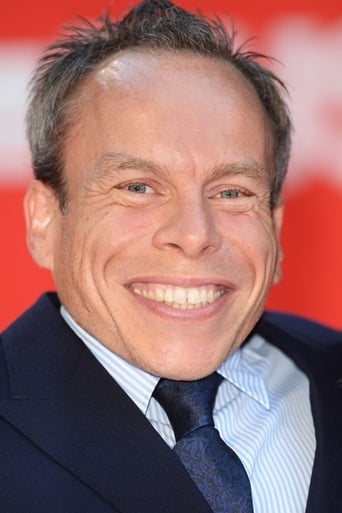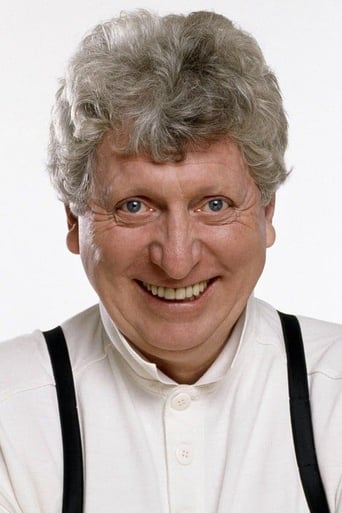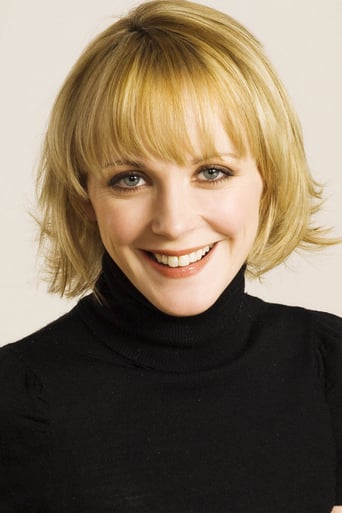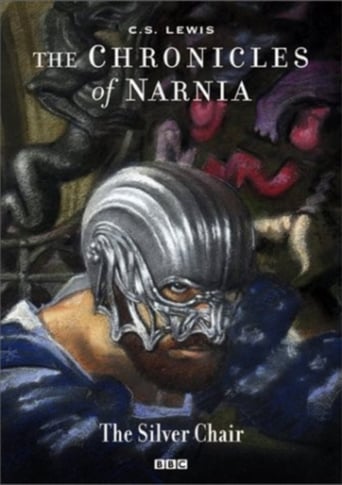
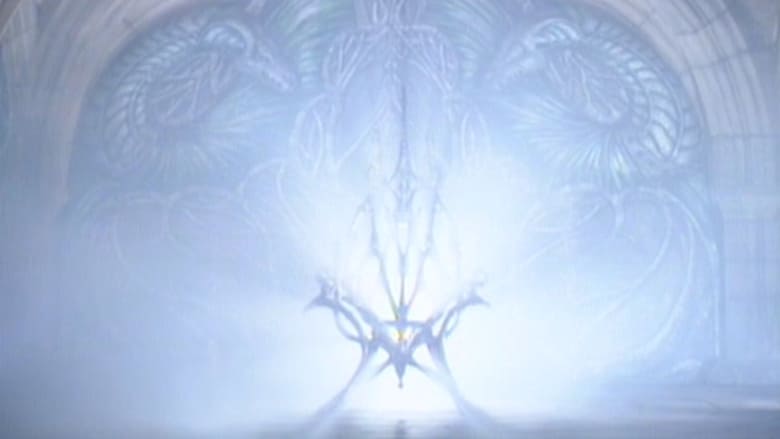
The Silver Chair (1990)
Eustace, along with a new companion named Jill Pole, is brought back to Narnia. The pair are told by Aslan they must search for King Caspian's missing son, Prince Rillian.
Watch Trailer
Cast


Reviews
The plot isn't so bad, but the pace of storytelling is too slow which makes people bored. Certain moments are so obvious and unnecessary for the main plot. I would've fast-forwarded those moments if it was an online streaming. The ending looks like implying a sequel, not sure if this movie will get one
This is one of the best movies I’ve seen in a very long time. You have to go and see this on the big screen.
It is neither dumb nor smart enough to be fun, and spends way too much time with its boring human characters.
The film never slows down or bores, plunging from one harrowing sequence to the next.
This collection gives us the complete set of the BCC adaptations of the Narnia novels by C.S. Lewis in three miniseries of six episodes each, plus some extras. The first is "The Lion, the Witch and the Wardrobe" (1988) about the city Wardrobe in the country Spare Room. The second (1989) brings together "Prince Caspian" (two episodes) and "The Voyage of the Dawn Treader" (four episodes). The third concerns "The Silver Chair" (1990).The first adaptation sets the tone and the main characters. The tone is that of the novel and it is done for children. It sounds slightly naïve at times because the storyteller is no longer constantly present and is not C.S. Lewis at all when there is a voice over. The regular "we" or "this world" or even the "lions of Trafalgar Square", meaning the real world, addressing the children's audience from an external adult point of view, reminding us of the fact that this is all a story, disappear and I think it is a loss.The second adaptation makes two full novels into one story with a shift from the first one to the second that is at least abrupt and the packing up of the two in six episodes makes psychological details and descriptive details scanty. The story becomes a story line more than a fully developed story. The dragon though is a good nice creation, and that was necessary since it was an essential element and it had to fly properly, which is not the case with other flying animals, particularly Aslan. They are mostly simple and stiff. It keeps the story of the Dawn Treader the way it is in the novel and the end is the real end including the final pilgrimage of the mouse Reepicheep and the return of the children. It is a lot more respectful of the spirit of the story than the ending of the recent long feature that can be seen in cinemas.The last adaptation gives details and the witch is a marvel though her becoming a serpent and being killed is less impressive since no green blood is shed and only Prince Rilian takes part in that execution. Eustace and Puddleglum taking part is nice but in the novel. The escape from the underground city does not try to explain the even deeper world of fire and incandescence into which all the gnomic slaves of the witch jump back happily. I miss the big celebration outside the hole from which they extract themselves, with fauns, dryads, satyrs and dwarfs all dancing together. But well at least they keep the details of King Caspian X's death and his resurrection in Aslan's country though they soften the harsh commentary of C.S. Lewis on the English school system and the incompetence of school principals and inspectors, or MPs.But these adaptations are interesting nevertheless. They insist on the fact these stories are not heroic fantasy but only children's literature. That is important because then the values that are presented in the films are pedagogical and not only entertaining. It is also important because it avoids, like the books, any subject that is not childlike or child-friendly. No love is wasted on anyone and even friendship is rather kept lily pure. No kissing, please, we're British.Ut also defends the basic humanistic values of the books in fair contrast with the the world at the time or the literature of Lewis's time. A fair and clear condemnation of slavery and the exploitation of animals. But since the novel "The Boy and His Horse" is not there the rejection of political totalitarianism is absent. The allusion to the usurping uncle in Prince Caspian is by far not enough. Lewis's books are deeply committed to a democratic system. The films are far from being as clear as that. Calormenes are absent for example.The films are also a lot less clear than the books that only people having some human blood can rule Narnia, including the White Witch of the first film who is a descendant of Adam, mixed with other bloods, including jinn blood from the sexual partner Adam had to procreate that line of descent. The absence of "The Boy and His Horse" also deprives us of the description of the four initial human kings and queens of Narnia, including Queen Suzan who is definitely not served very fairly.But for me the main absence is in fact "The Last Battle" because it reveals two essential things in these seven novels: the idea that all worlds have a beginning and an end, including Narnia, that this end can only come from both inner strife, invasion and political manipulation of the masses that are shown as basically easy to manipulate into divisions or obeying absurd commands. The masses make history but only when some individuals and foreign forces join their efforts to conquer the minds and imagination of these masses.This last novel was Lewis's testament and he showed in it that he did not really believe in democracy, i.e. the power of the people, for the people and by the people, because he did not trust any politicians but preferred an aristocratic monarchy in which kings and queens are of a different sort from the people and the masses. The main difference between Calormenes and Narnians is that The Calormene "master" (who is a Calormene by genetic birth) governs Calormenes as slaves, with a very narrow aristocracy, and the Narnian "king (genetically different from all Narnians by at least some human genes) grants them freedom and diversity.To avoid in anyway the bleak atmosphere of "The Lord of the Rings" or "The Time Machine" they produced a brave new world that lacked most of its pith and marrow. The series are interesting but only as entertainment for children and they lose the pedagogical dimension the books constantly keep.Dr Jacques COULARDEAU
C.S. Lewis's masterpiece certainly deserves better than this. This production occupies a narrow range beginning at quite poor and topping out at lower mediocre.Let's begin with the acting. The principal lead characters, Eustace Scrubb and Jill Pole ("Scrub and Pole" might have been a bluegrass banjo duo, which probably would have been more entertaining than the acting), were portrayed woodenly, as if these children hadn't quite internalized their acting class lessons. Puddleglum, the third lead, is somewhat better, but that's probably because his character calls for odd behavior, always inherently more entertaining. The rest of the acting is more or less passable but certainly nothing to excite even a small town acting awards committee.The animation is really amateurish, including the entirely fake-looking Aslan and his up-and-down-only mouth movement. The owls in flight are nearly embarrassing, the animation is so poor. The special effects are another sorry area. A number of these take place over a "green-screen," with the adjustment not well done so that the shimmering around the edges of the actors so positioned is often quite pronounced. That this production was shot on video tape, with the stark and artificial look it has, might have saved money, but it didn't improve the production any.The music is particularly poor. It almost seemed as if whoever did this wrote a score without viewing the video. There is not much linkage between the two, and the nature and quality of the score isn't very good in any case. The sets are better, many being pretty well done. Locations are nice, too. Costuming ranges from pretty good to bizarre.Perhaps strangest and most amateurish is the lagging nature of the dialogue, as if the director was trying to stretch out the production length another 20 percent. There is nearly always too much time between elements of dialogue. It gives the whole production a really phony-sounding quality.It is disappointing to see a BBC production, particularly of an English classic, this poorly done. The highest possible use for the video tape masters of this effort would be to use them to kindle a fire in a land fill.
This is the third in my three-part review of the BBC Narnia serial. Please check out my earlier two.THE SILVER CHAIR This one's always been the best, hands down. Similar to Dawn Treader, this is due to the story being a quest, which adapts well to film, and there is less emphasis on battles or visual f/x, but more on adventure and discovery. The climatic scenes involving Rillian imprisoned in the silver chair make for compelling drama. I also think the costumes and sets improved this time around, especially in the Underland Palace.The cleverest conceit of this adaptation is the idea of the bewitched Rillian wearing an iron mask, something that wasn't in the book but works BRILLIANTLY on film. Obviously they HAD to do this so that the audience wouldn't recognize him at first, but it just adds such a great visual touch to the tormented character. Indeed, the role of Rillian is really a three part performance: 1. A naive romantic youth in the flashbacks, 2. An angry and tormented knight while bewitched, and 3. A more mature and valiant version of the first stage after he is freed.Camilla Power is very good as Jill, making the character very headstrong and likable (which Lucy wasn't). She's also very pretty. Eustace is good again. Warwick Davis (who previously was Reepicheep and this time is Glimfeather) and Big Mick (as Trumpklin) are also good again, but sadly there is less of both. Barbara Kellerman (playing a different witch) totally overacts yet again, and THANK GOD that there is also less of her this time around.But the real star is Tom Baker as Puddleglum. Everyone who's ever seen this agrees that his performance is likely the best in the entire BBC series, and I personally think he deserved a BAFTA. He just plays the role so pessimistically, yet delivers his jokes with such a straight face. And underneath all that, he's actually a very brave companion, and his speech to the Witch makes you want to cheer.Alas, nothing is perfect, and this entry still has problems. The production value is still what it is, and the pacing becomes a problem again (a full 3 hours on a rather simple book). There is one scene that LITERALLY DID make me crack up at its corniness, which is when Eustace tries to stop Jill from falling off the cliff and ends up falling himself. What makes it so funny is the fact that you don't actually see the cliff they're standing on, and it was obviously just filmed over a hill. But I will forgive them that, since I realize that with their budget, there probably was no alternative way to film the scene.WEAKEST MOMENT: When our heroes arrive at the committee of the Owls, and we're staring at a bunch of cartoon eyeballs in the dark. Oy vey!In conclusion, the BBC serials were a worthy attempt at adapting Narnia, and most of us who loved Narnia as kids and had no other film versions will look back at this series with nostalgia. But I for one look forward to the new versions. The true Aslan and Narnia exist only in the pages of C.S. Lewis, and that is the best place to get the story!
I've grown up watching this and the other three Narnia movies (TLTW&TW PC & TVotDT). I fell in love with them. As far as adaptations go, they were wonderfully done. The child actors used did a great job of portraying Eustace and Jill, and Caspian at the end. it was all brought together wonderfully, and when watching it, you can almost believe that you will entr Narnia yourself. i wish they could've done all 7.


